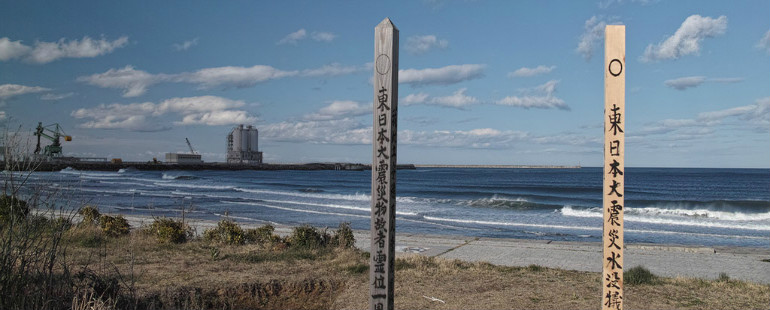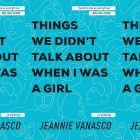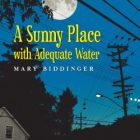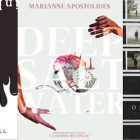“A Landing Spot for My Word-Sounds”: An Interview with Naoko Fujimoto

Naoko Fujimoto’s lyrical, musical poems are written across distances—whether it’s the personal distance between the poet and the personas she adopts in her work, or the physical and psychological distance of writing from the U.S. about the earthquake and tsunami that struck Japan in 2011. Fujimoto is the author of Home No Home, winner of the 2015 Oro Fino chapbook competition. Her poems have also appeared in Prairie Schooner, Hotel Amerika, Passages North and many other journals. Born and raised in Nagoya, Japan, she holds a B.A. and an M.A. from Indiana University South Bend. We caught up earlier this summer to talk about writing poems, skydiving, and what we do and don’t tell our moms.
Matthew Thorburn: Would you talk about the distances in your life and work? How do they affect your poetry? Do you find such distances helpful, or more of a challenge?
Naoko Fujimoto: Your first question is interesting because one of my very first poems I wrote in English was originally entitled “Distance.” I wrote about my mother in the poem. I modeled her a lot in my earlier works. I was not intentionally killing or victimizing her—good news, everyone, she is still alive.
I respect my gorgeous, healthy mother who supports my international lifestyle; however, I do not think that we have the best friend-type relationship. Maybe because I do not tell her everything. I usually tell her things after they happen; for example, I sky-dived last weekend, then had a colonoscopy yesterday. But I will not tell her for a few days yet. I simply do not want her to worry about me. I am, however, an attention seeker, exaggerating my experiences somewhat ridiculously to see her smile.
But then I ask, if I like making my mother happy, why do I not live in Japan? Moreover, if I write poems about the earthquake and tsunami and am really concerned about their situation, why do I not visit more and actively support their redevelopment?
I admit that I am a very heartless, selfish person, but I like capturing moments which I can observe from a distance. It may be a similar concept to Georges Seurat’s art. It is very difficult to identify what he drew one inch away from his art (just colorful dots), but all the colorful dots mix together from a distance to become “A Sunday Afternoon on La Grande Jatte.” For me, I almost need to be 7,000 miles away from Japan to observe and reflect on my family, culture, and identity.
Like observations in the physical plane, I also like observing historical events and adapting them into my poems. Even though people are still healing from the earthquake and tsunami, it is history. Events from World War II and personal interactions with friends and family are also fused in some poems, seemingly unrelated, but in my mind they work together in a cohesive narrative. Fitting some of those pieces together into poems is one of the more exciting aspects of writing for me.
MT: We hear music, and musical instruments appear, at key moments throughout Home No Home—and in a biographical note I read that you are “occasionally a pianist.” What role does music play in your poems?
NF: Classical music is a huge part of my life. My father played his record player every morning when I was young, so I woke up to Beethoven’s Symphony No. 9 and other works. He would sing along with it in German while brushing his teeth, which on its own sounded interesting. Sometimes he played Rachmaninoff’s adagio—my favorite—or more dramatically, Brahms’ piano rhapsodies. I really wanted to be a pianist until I was 19 years old, but suddenly I could not commit fully to practice it.
For a long time, I was nervous. Was my poetry going to end up like my piano aspirations? But my colleague, Ryan, said that I may not write all the time, but the technique will not be lost like the technical movements of a piano’s keys. So I felt much more comfortable facing my poetry career.
I think that English is a more phonemic language than Japanese. Writing poems in English allows me to compose word-sounds that are very pleasing to me when read aloud. To me, Rachmaninoff’s musical phrases always seemed like a parachute landing in a perfect green field. I am very happy when I find a landing spot for my word-sounds in my writing.
MT: Having asked earlier about distances, I also wondered if you feel distances between your two languages, and how that impacts your poetry? Do you write your poems entirely in English—or do lines and images sometimes come to you first in Japanese?
NF: My pianist friend from Georgia (Europe) once asked me why I write in English. My answer was that my mother cannot read in English. Then the pianist laughed hard and said that it was a silly reason. “Write something more important in Japanese,” she would say. That may work, but I still do not write stories or poems in Japanese. Currently, my language situation is very awkward—my English will never be perfect, but then I am losing my academic Japanese language skills as I spend more time in America. My first draft of anything mixes both English and Japanese phrases in a notebook. And then I start typing a poem in English. Once I am satisfied with my draft, I show it to my husband to proofread.
MT: What have you read recently that moved you?
NF: Right now, I am reading lot of Japanese literature. I like reading ancient Japanese writings like the Ogura anthology of one hundred tanka, and haiku from the Edo period. Those poets perfectly captured a moment of life and wrote it in a very simple manner. Their writing topics are the same as current ones—love, death, family issues . . . And I would like to keep my point of view grounded in my Japanese upbringing, so I can merge that into this complicated, multicultural society. If my poems can somehow influence and connect to the next human generation through personal yet universal themes, I would be very happy.



